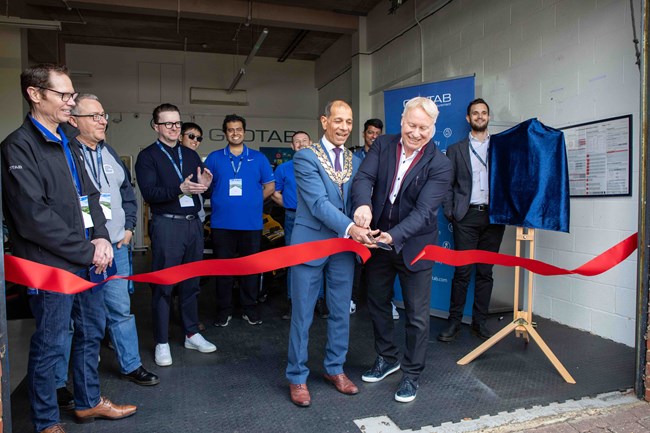We use cookies to ensure that we give you the best experience on our website. If you continue without changing your settings, we will assume that you are happy to receive all cookies on the Business Car website. However, if you would like to, you can change your cookies at any time

The start point for the best source of fleet information |
OEM data moving in the right direction, Geotab says
Date: 17 April 2023 | Author: Martyn Collins

With more and more connected data coming from vehicles, we asked Kulperger how Geotab was finding working as an intermediatory for its clients, and whether manufacturers were now more open to working with it?
He said: "I think it has really moved in the right direction. I would say if you asked this question in 2018, 2019, or even 2020, there was an extreme hesitation from the vehicle manufacturing OEM community to work with anyone on the data side.
"We've found that's really shifted as anti-trust law and data ownership laws have recognised that the people who own the vehicle are the people that own the data. So, others can process the data, with the right consent behind them.
"OEMs, even in Germany, have really shifted from a 'this is my data, I'm going to build models off this' stance, to understanding that there's an ecosystem out there. If they enable companies like Geotab to process the data, they will also benefit from that."
Kulperger explained that there were a couple of different ways that Geotab worked.
He said: "The first is by leveraging the data signals that they provide to their Cloud environment. We then bring that into our 'My Geotab' environment, where our customers can leverage that data.
"If a customer owns 100 vehicles, and they own 20 Mercedes, 20 Ford and 20 Renault, the data signals and frequency that they all send, is not near what Geotab would send.
"We work with the various OEMs, sharing our methodology to extract data from the vehicle and we're working on not just influencing but collaborating with OEMs on this. This is because there's intrinsic benefit to them, the large purchasers of vehicles expect the granular data that Geotab has. That helps them out and secondly, you must pay to transmit that data.
"If we can minimise the amount of transmitting through our patterned technology, it lowers their cost. There is intrinsic value in selling the data, or monetising the data, and an intrinsic value in lowering the cost of the data, equalling a growth in profits."
Kulperger also believes electrification has contributed to making it easier to work with OEMs and their data.
He said: "I think that the OEMs have come to realise that they can't do it all themselves. There is not a single fleet that has just one manufacturer.
"All of them have mixed use fleets, and because of that none of these large fleets have just gone and bought data from the OEMs, because they would have to buy data from every organisation.
"Then unify that data, and make use of it, through analytics and into their own operating systems. It is just not that easy. They would all have to invest serious infrastructure in people resources to do that."
Kulperger went on to tell us that from the vehicle generated data side in Europe, 100% of their customers are demanding real world EV data.
He said: "There are some government departments in North America that really want EV data as well, but mainstream fleets here are way ahead of the stream versus the rest of the world."
Although integration remains important to Geotab, Kulperger told us there was also a new product on the way.
He said: "I can tease that we're going to launch a secondary keyless device - so a car sharing device in the near term. We will hard launch in the next 60-90 days.
"A lot of our focus is on integration. So, integrating with multiple software and hardware providers. We think that integration is key right now, and there's much focus on that."
Kulperger agrees with the view that car sharing and mobility took a back seat during the Covid-19 pandemic, but are now coming back strong.
He said: "We see vehicle ownership shifting, so the younger generations that are coming up really have no interest in owning a vehicle.
"They would rather own a phone and share a vehicle. As this generation moves into the middle management workforce, depending on the country that they live, a condition of employment is usually receiving a company vehicle.
"Leasing companies that are providing these kinds of vehicles to corporate customers are looking for innovative ways to reduce their car parc.
"Reduce the number of vehicles that they would provide, and instead supply incentives and benefits for people to leverage a sharing scenario. We see that just starting to grow again."











